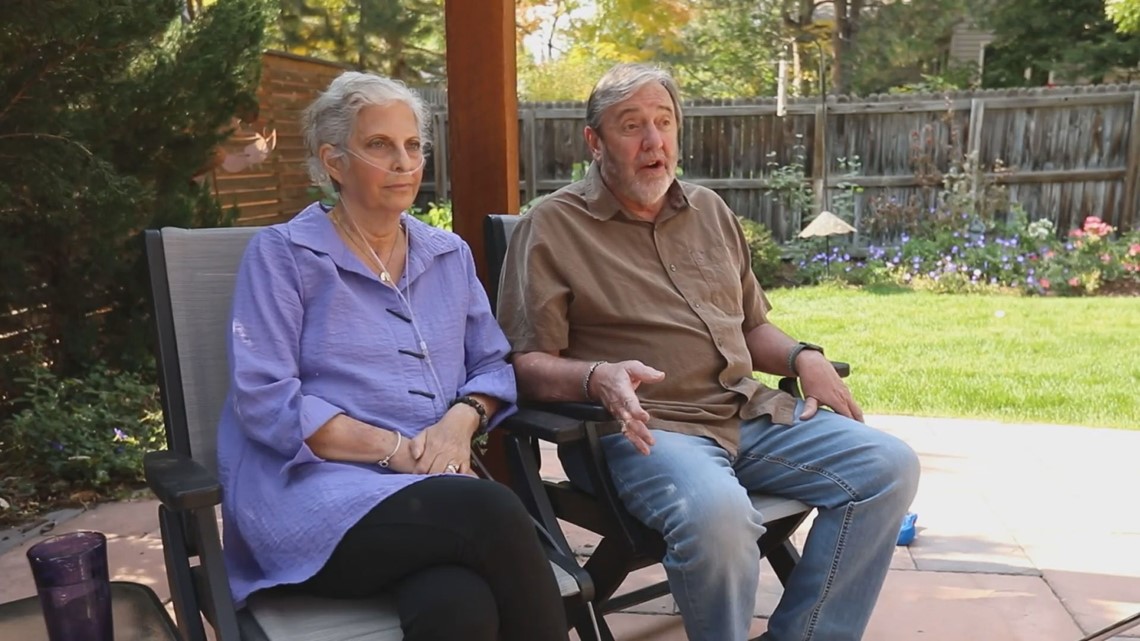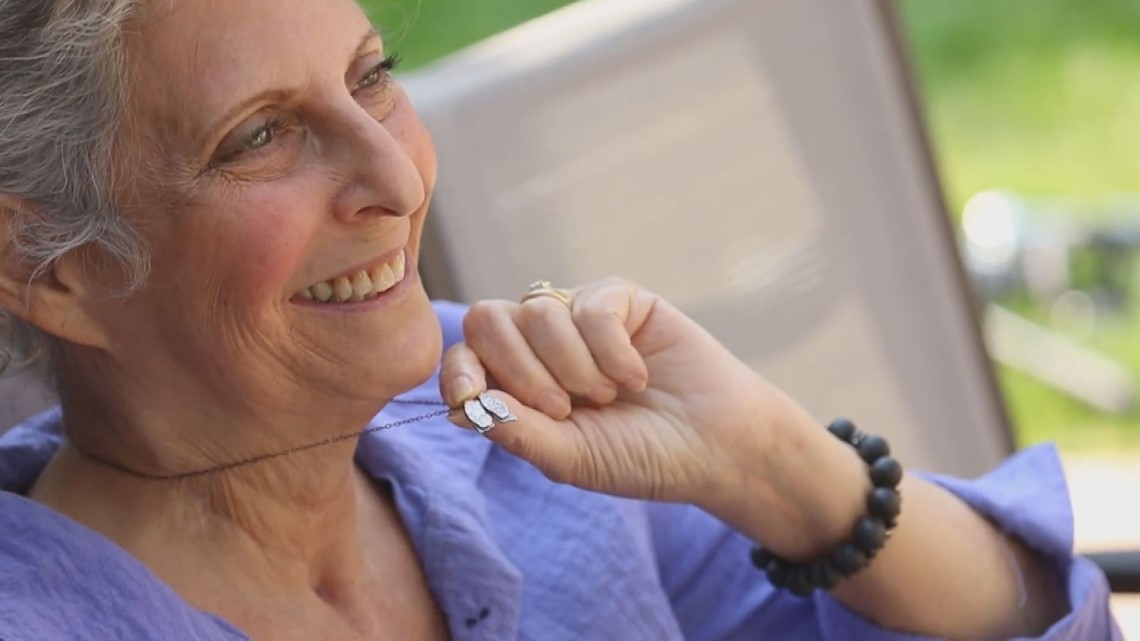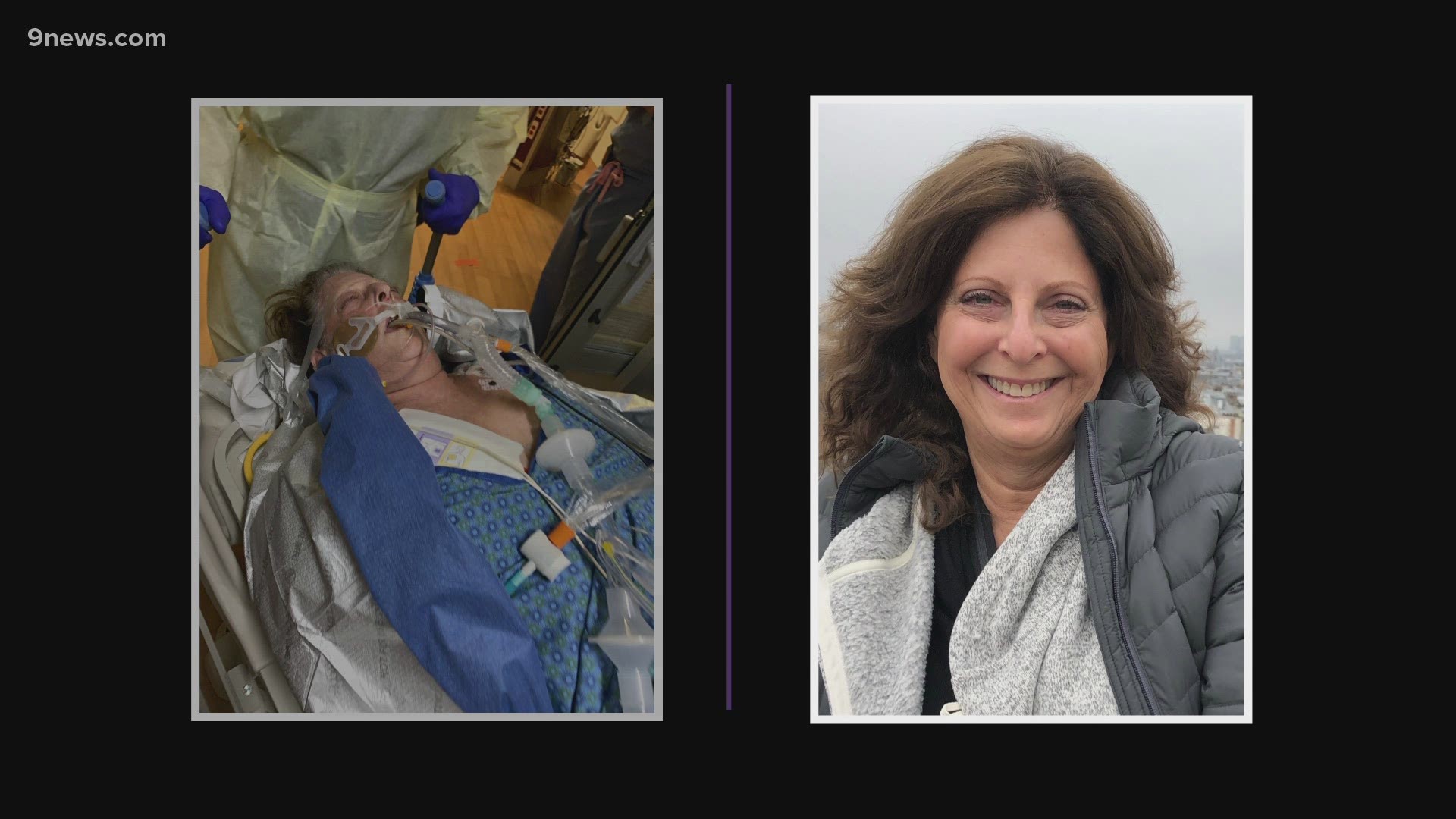BOULDER, Colo. — Barbara Gould lost her entire spring and summer to COVID-19, but she’s here as fall changes to winter.
This wasn’t always a given.
“There was one time where I knew I was gong to die,” Gould said. “And I had a discussion with myself about it. I was really pretty calm. It felt quite peaceful.
“I could feel myself going and I did an accounting of the people closest to me, and thought ‘you know, everybody will be ok.’”
In all, Gould spent 65 days on a ventilator, more than three months in four hospitals and 15 days undergoing the experimental treatment that is ultimately credited with saving her life.
The 64-year-old and her husband fell ill in March, shortly after returning to their Boulder home from a South American cruise. During the ensuing weeks, her husband Allen Taggart got better from a disease they assumed was the novel coronavirus, even though they couldn't get a test to confirm their suspicions.
Gould kept getting sicker, and went to the hospital on April 7. She didn’t go home until July.
“Every day we would wait, every day to be able to talk to the doctor,” Taggart said. “Three times we thought she was dying. It was so exhausting.”
Gould was initially treated at Boulder Community Health, and was placed on a ventilator. Days went by, and she wasn't getting better -- even though unlike many patients, her heart and other organs stayed strong.
Taggart begged doctors to do more, and they discussed giving Gould's lungs a rest through a procedure known as extracorporeal membrane oxygenation (ECMO).
This treatment involves placing tubes into the heart to do the work of the lungs. It hadn't been done on someone who had been on a ventilator for more than a week, but a team at UCHealth agreed to try.
Gould was airlifted to the UCHealth University of Colorado Hospital, and Dr. Jessica Yu Rove, a cardiac surgeon there, said she'd advocate for her.
"She said 'you need to understand this is a Hail Mary, this is all we got left," Taggart said.


Every day, Taggart sent out messages to friends and family. Every day, he and their kids FaceTimed with Gould, even when she was unconscious.
Gould said she was on the ECMO when she had the premonition she might die. And that same day, her husband sent out a message to the people who love her.
"Friends, the doc let us know today that Barbara's time on the ECMO has not helped her lungs as much as they hoped," Taggart wrote. "They will try a couple more interventions over the next few days to see if she can improve enough to get off the ECMO, however, if the lung compliance still hasn't improved, there will be nothing more they can do to save Barbara's life.
"Prayers and healing thoughts, please. It's time for a miracle."
Gould said she knew this mattered, because the next day, she started feeling better.


During the two and a half months she spent in treatment, she lost her hair and the ability to speak and stand. She moved to a rehabilitation facility, and after 91 days of lost time, came back home.
“Her case as really been the inspiration for some of the research we’re doing now, and looking at the recovery of patients after ECMO, and not just their survival," Rove said.
In the months since her recovery, Gould said she's thought about the birthdays, family time and entire summer she missed while she was in the hospital, fading in and out of consciousness.
Her husband said one mantra has guided the family since March.
“Hope and patience, hope and patience," Taggart said. "My son had another one ... and that is 'mom is not going to be a statistic. She's not going to be a story.
"And here we are."
SUGGESTED VIDEOS: COVID-19 Coronavirus

